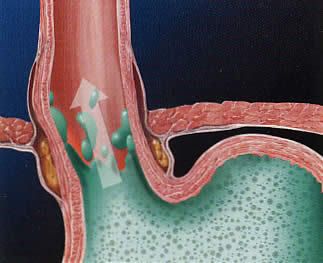Recently, a family member of mine has been dealing with a serious onset of acid reflux which has caused her excessive weight loss and has made it hard for to enjoy eating even with the medication Nexium. As most can relate, her doctor is eager to prescribe medications and has never once even talked about her diet as being a possible culprit. He prescribes endless medicines and procedures instead of discussing nutrition. This of course only adds to a patient's frustration and can render them feeling worse from side effects than in the beginning.
A recent article in the NY Times explains the situation perfectly and revelaed the sad truth that our medical practitioners are often not taught enough about nutrition in medical school: Teaching Doctors About Nutrition & Diet. So if you have felt a bit crazy at times and wondered why your specialist hasn't discussed nutritional changes which could alleviate problems without invasive medicines and procedures - perhaps they haven't because they don't honestly know. Nutritionists and Registered Dietiticians are more likely to be helpful on these levels than you ever imagined.
Apparently on an average, Americans eat a diet based on convenience and foods which set up an acidic atmosphere in our digestive tract. Because of this Americans are facing acid relux issues in epidemic numbers. So even if you are eating gluten free foods which are highly processed, you are not alleviating the triggers which can cause acid reflux to remain an issue. The key is to stop eating a majority of foods which break down in the body to become acidic. Contrary to beliefs, oranges and tomatoes actually break down in the body to become alkaline. Confused yet? Well here is a video which may explain it better - The title is misleading to the whole content - It is well worth a watch:
Secondly, if you or someone you love suffer from digestive disorders, that usually means there is some sort of inflammation or irritation present. This is true for anyone with IBS, Crohn's Disease, Celiac Disease, Colitis, Gastritis, etc. Here is a list of some foods that are helpful to reduce inflamation:
salmon, cold-water fish - omega-3's
grass-fed, free range meat - omega-3's
olive oil (extra virgin least processed) - oleic acid
salads - dark green lettuce, spinach vitamin C
cruciferous veggies - broccoli, cauliflower, brussles sprouts, kale - anti-oxidants, sulfur
cherries - anti-oxidants, lower glycemic index
blueberries - anti-oxidents
tumeric - anti inflammatory properties (found in brown mustard)
ginger
garlic - anti-inflamatory, glucose-regulating, helps infections
green tea - may reduce risk of heart disease and cancer
As we've touched upon here and in previous articles, the healing power of food can do amazing things.

No comments:
Post a Comment